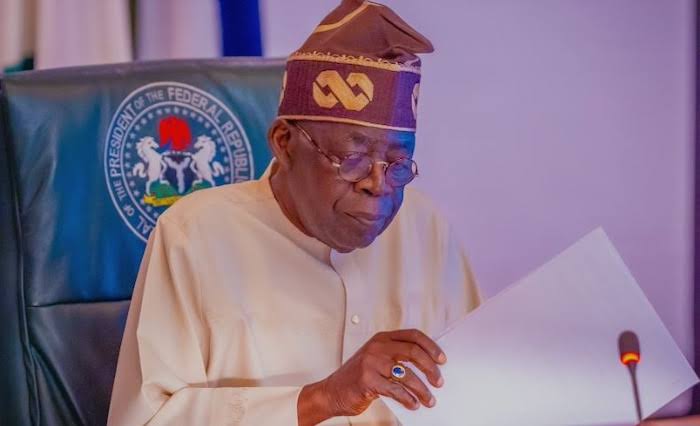Cabinet reshuffle: PDP, APC chieftain ask Tinubu to relinquish petroleum ministry
The Peoples Democratic Party (PDP) and a chieftain of the ruling All Progressives Congress (APC) have urged President Bola Ahmed Tinubu to transfer the leadership of the petroleum ministry to a qualified, dedicated professional who can address the challenges in Nigeria’s oil sector effectively. Following the cabinet reshuffle announced last Wednesday, PDP National Publicity Secretary, […]

tinubu
The Peoples Democratic Party (PDP) and a chieftain of the ruling All Progressives Congress (APC) have urged President Bola Ahmed Tinubu to transfer the leadership of the petroleum ministry to a qualified, dedicated professional who can address the challenges in Nigeria’s oil sector effectively.
Following the cabinet reshuffle announced last Wednesday, PDP National Publicity Secretary, Debo Ologunagba, described the reorganisation as “cosmetic” and inadequate for addressing the country’s pressing needs.
He particularly criticised President Tinubu’s decision to retain the petroleum portfolio and establish a new Ministry of Regional Development, which he argued would create excessive bureaucracy and impede policy implementation.
Ologunagba stated, “Given Nigeria’s current situation, one would expect the president to assign the petroleum ministry to an experienced professional who can dedicate their full attention to studying and reforming the sector for the benefit of Nigerians. The current sluggishness in the sector reflects the need for focused leadership.”
- NIGERIA DAILY: Why More Car Owners Are Switching To Public Transport
- Pastor Bakare’s 70th birthday to x-ray S/Court ruling on LG autonomy
He added that the ongoing management of the petroleum ministry by the president has failed to deliver value to Nigerians, who continue to face high fuel costs. Ologunagba suggested that petrol prices should be no higher than N500 per litre and urged the government to reconsider the subsidy policy, which has been a source of public discontent.
The PDP spokesperson also criticised the creation of the Ministry of Regional Development, describing it as a “super monster” that could delay regional development efforts due to increased bureaucracy.
“Why create a massive structure that contradicts the push for devolving power to the regions? This ministry risks becoming a roadblock rather than an asset,” he argued.
The cabinet reshuffle, which included changes to the women affairs and sports portfolios, was dismissed by Ologunagba as superficial. “This reshuffle fails to address Nigeria’s economic crisis and is consistent with an APC-led government that lacks concern for the well-being of its citizens,” he stated, adding that the PDP had hoped for a meaningful cabinet overhaul to improve living conditions for Nigerians.
Echoing similar sentiments, Osita Okechukwu, a founding member of the All Progressives Congress (APC) and former Director General of Voice of Nigeria, also called on President Tinubu to step down as Minister of Petroleum.
Okechukwu described this move as essential for addressing transparency issues within the oil industry, including the actions of what he called the “Oil mafia.”
He argued that Tinubu’s role in the ministry creates a conflict, making it difficult for the Coordinating Policy Unit, led by Hadiza Bala Usman, to monitor the ministry effectively without compromising their oversight authority.
Okechukwu further warned against the risk of “state capture” within the petroleum ministry, a factor he claimed has historically hindered reform in Nigeria’s oil sector, preventing any of the country’s refineries from being fully operational for decades.
He stressed that relinquishing the petroleum ministry to a dedicated minister would help combat opacity in the sector and set the stage for much-needed improvements.
